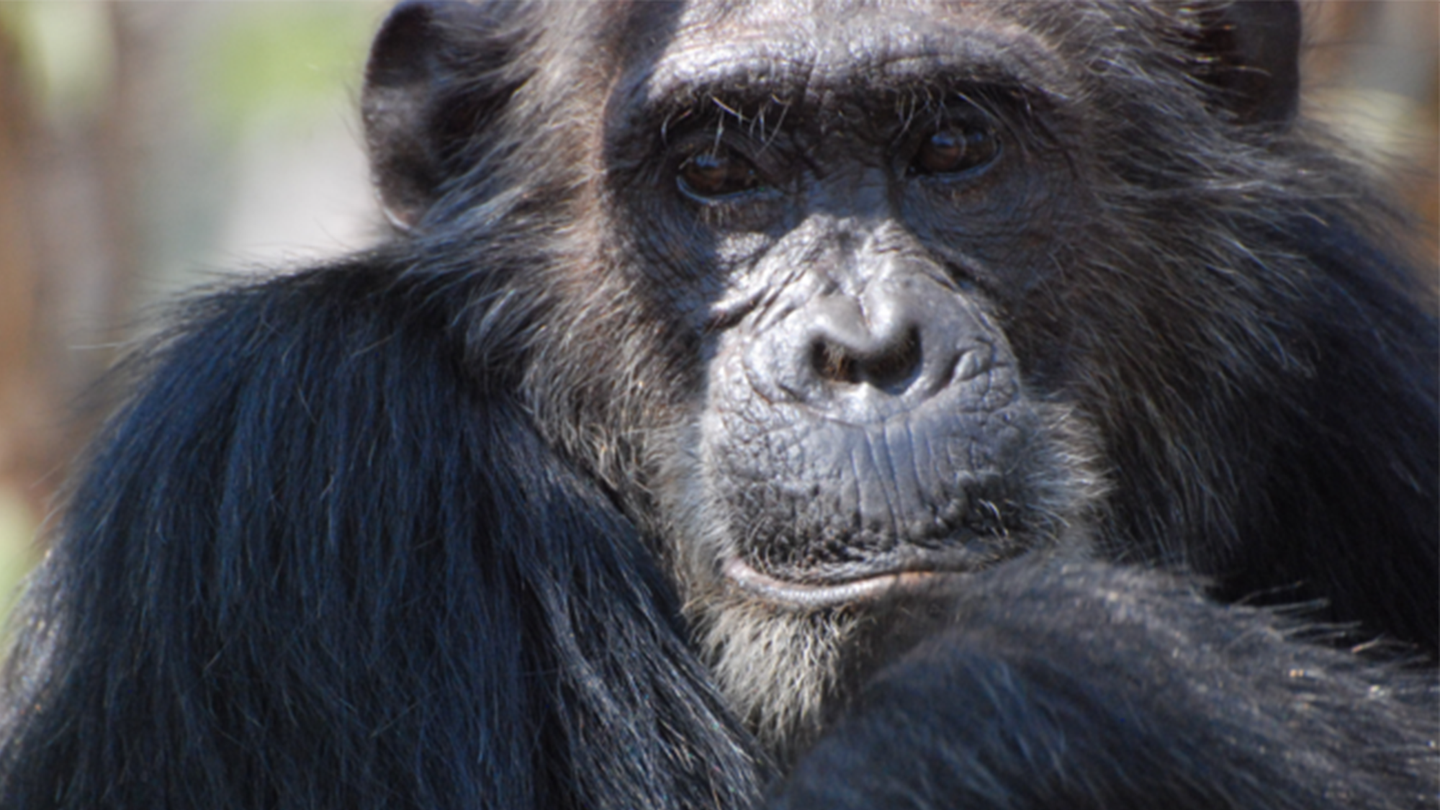Nice chimps finish last—so why aren’t all of them mean?
Long-term data on chimpanzees adds another piece to the personality puzzle.

Is the phase “nice guys finish last” actually true? Unfortunately for all the soft-hearted among us, brutish behavior can be an effective path to power and dominance in both humans and chimpanzees. A study published April 24 in the journal PeerJ Life and Environment found that the male chimpanzees who exhibited greedy, irritable, and bullying personalities reached a higher social status. These rascals were also more successful at producing offspring.
[Related: Adolescent chimpanzees might be less impulsive than human teens.]
However, the team is still plagued by a puzzling question from these findings: if being mean is the key to success, why isn’t every chimp a bully?
For the study, the team followed 28 male chimpanzees living in Tanzania’s Gombe National Park. A previous study had found that these particular chimpanzees had a few members that are more sociable whereas others are loners. Some of the chimps had overbearing personalities, and some were more easy-going. And, of course, there are a handful that are more quick to pick fights with others.
Tanzanian field researchers performed personality assessments on the chimpanzees based on years of near-daily observations of how each animal interacted with others and behaved among the group. They found that a personality combination of high dominance and low conscientiousness helped the male chimpanzees fare better in life than the others, but it still doesn’t answer the evolutionary puzzle of why personality differences exist at all.
A long held theory is that different personality traits matter at different points in an animal’s life or that certain traits that are a liability when an animal is young may pay off in old age.
“Think of the personality traits that lead some people to peak in high school versus later in life,” Alexander Weiss, co-author and comparative psychologist at the University of Edinburgh, said in a statement. “It’s a trade-off.”
The team tested the theory using almost 40 years of data that goes back to famed primatologist Jane Goodall’s early research at Gombe. Across the lifespan, the same personality traits were linked to both high reproductive success and high social rank.
[Related: Popular chimpanzees set hand-holding trends for the whole group.]
Something else must be behind the diversity of chimpanzee personality. The “best” personality to have could depend on social or environmental conditions. Gender could matter too—a trait that is beneficial to males could cost a female. If this is true, then “genes associated with those traits would be kept in the population,” Weiss said. Further study is needed to confirm this idea.
The suggestion that animals have distinct personalities was considered taboo not too long ago, with Goodall herself accused of anthropomorphism with her descriptions. Scientists have studied animals ranging from squid to birds, finding evidence of distinct personalities. These quirks, idiosyncrasies, and ways of relating to the world around them remain reasonably stable over time and across situations.
Like with measures of human personality, personality ratings for animals have also been proven to be as consistent from one observer to the next. “The data just doesn’t support the skepticism,” Weiss said.
